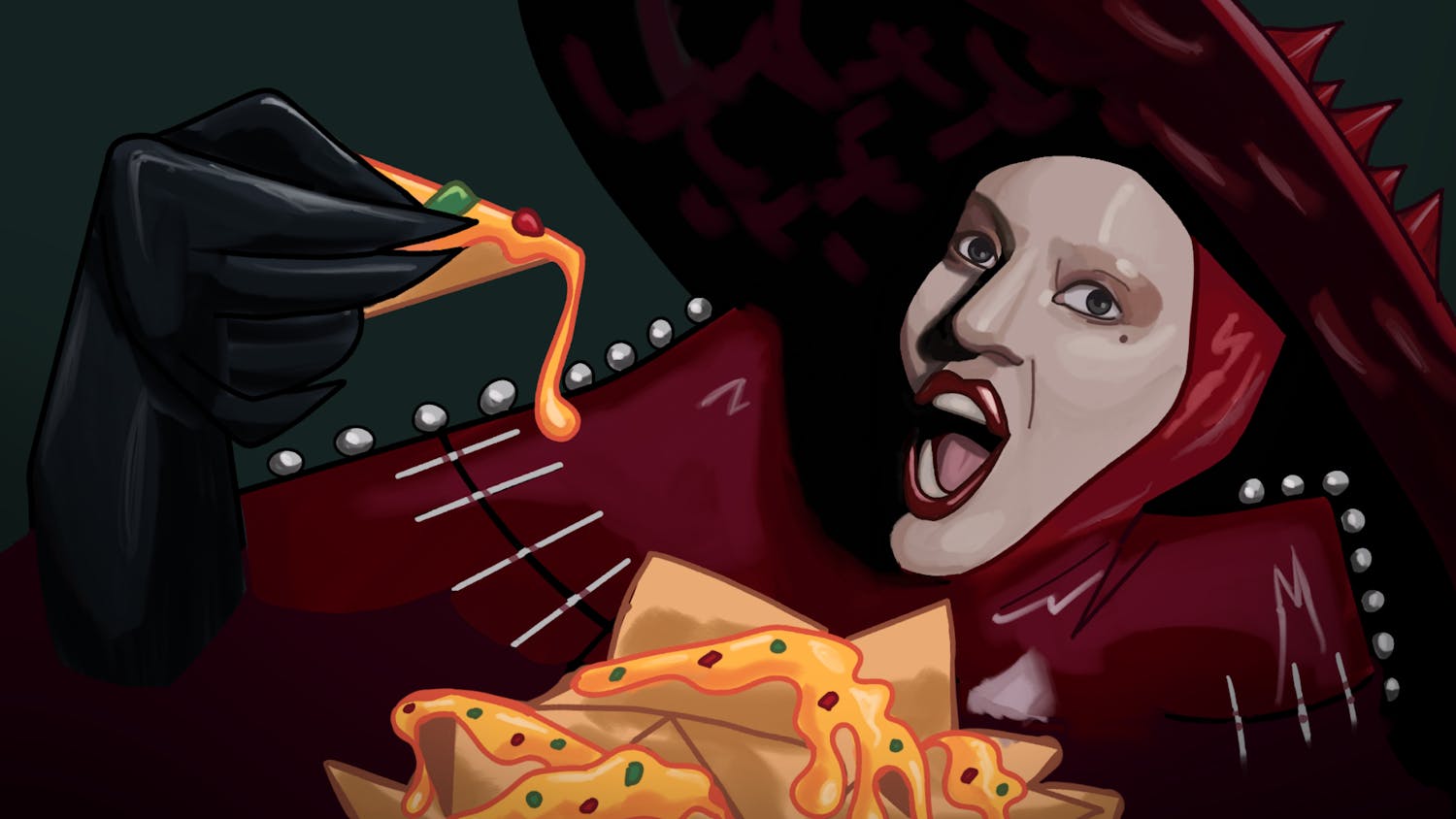From Oct. 19 to 29, Bartell Theater is showing the production “Bent.” The play, written by Martin Sherman in 1979, tells a story about the persecution of gay individuals in Nazi Germany. Following the life of Max, a gay man estranged from his wealthy family living in 1930s Berlin, the audience is immersed in the heart-wrenching representation of what life was like living as a queer person under Hitler’s rule.
The play was performed on the intimate black-box Evjue stage to an audience of about 35. The smallness of the space only intensified the immediacy of the story in connection with the audience. The quaintness of the room in which it is performed, along with the actors’ impressive amounts of dedication, led to a truly absorbing experience.
However, we provide a word of caution before viewing this piece of artistic creation. "Bent" is not a play that holds back on the realities of the history it displays. The program contains multiple disclaimers for nudity and violence. Its topic is grim, and the actors, remarkably, do the plot justice. This led to an emotional response from the audience, mostly conveyed through startled and horrified gazes at scenes coupled with deafening silence. Although this play is not for the easily-disturbed, “Bent,” under its circumstances of being a small-production play, leaves audiences with a powerful impression.
The play opens with Max (Patrick O’Hara) and his boyfriend, Rudy (Lennox Forrester), beginning their morning after a night out at the club. The first part of the play is driven by this back-and-forth between the two characters. They dance around the stage, bickering all the while, and we learn that Max brought a man home last night — a “stormtrooper” by the name of Wolf (Patrick Mahoney). The playful first scene takes an abrupt turn when two SS officers rush in, beating Wolf to the ground and eventually killing him. Being a “stormtrooper,” or a member of the Nazi paramilitary force, costs Wolf his life when Hitler orders an execution of high-level Nazi officials who threatened his power.
This is how “Bent” plays out: scenes of love, tenderness and passion are interrupted, jarringly, by brutality and violence of an incomprehensible degree. These interruptions often happen with almost no warning, and the air in the theater becomes tense as the audience can’t help but wonder who or what will be next to go.
After Max and Rudy escape their Berlin home, they talk to their drag queen friend, Greta (Matt Reines) who reveals she sold them out to the SS. Taking the money Greta was given from the SS, they flee. There is an unsettling feeling during their conversation with Greta that the world has shifted without them realizing it: the Weimar Berlin they knew is gone. It’s no longer safe to be who they are. This strikes a chord with LGBTQ+ folks; often queer identities are marginalized, making society an incompatible place with their identities.
”Bent’s” pacing is also an effective communicator in its presentation of instability; not long after the first few scenes, we skip two years. These later narratives depict life in the concentration camps. In the camps, similarly to how Jewish individuals were forced to wear yellow stars, prisoners known or suspected to be gay are branded with pink triangles. This symbol of a pink triangle becomes increasingly relevant as the plot accelerates. “Pink triangles” are treated worse than any other sector, and are discriminated against even by the other prisoners. The actors point out the absurdity of this prejudice well. By the end of the show, the audience is left in reflection of what it would have been like to be a pink triangle during World War II.
With a cast of seven and a small stage, “Bent” was still able to convey the magnitude of the Holocaust with the resources it had. The scenes are mostly back-and-forth conversations, and the actors use the space to the fullest. When they spoke, it at times felt like they were speaking directly to the audience. The dialogue and acting takes center stage in this play; small gestures and off-handed comments carried heavy significance in the oppressive environment of the concentration camp.
Overall, “Bent” exhibits a sense of humanity and hope found in the darkest places. Love is a central theme throughout, normalizing queer relationships and presenting the gay characters as fighters who refuse to give into the hate that surrounds them. The ending displays a major act of pride by the main character, Max. The tragedy of their situation contrasted with the strength of the love the characters learn to give themselves and others makes “Bent” a one-of-a-kind production and stirring experience.
If you would like to view this production yourself, the showing dates run until Oct. 29. The Bartell Theater in which “Bent” is hosted is a lovely space with a comfortable atmosphere and friendly staff. They are also transparent about the costs put into production, with their budget reaching the high thousands. The playbill said the theater will need to sell 501 full price tickets in order to cover their costs. They also give half of their “red bucket” donations to the Center for Black Excellence.
If you are curious about the ways in which queer people navigated their persecution in Nazi Germany and would like to support a local theater, consider going out to watch “Bent.”






